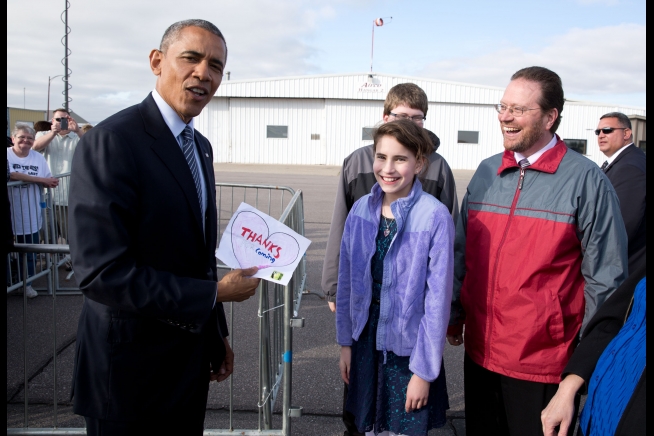South Dakota’s legislature is making significant strides this session with the introduction and passage of several key immigration bills, one of which, Senate Bill 7, is now headed to Governor Rhoden’s desk. The bill aims to preclude cities, counties, or schools from serving as safe havens for undocumented immigrants in the state.
Senate Bill 7: Enhancing Cooperation with Federal Authorities
With a decisive 62-6 vote by the state House of Representatives, Senate Bill 7 prohibits local authorities in South Dakota from establishing policies that prevent cooperation with federal immigration officials. Sponsored by Rep. Mary Fitzgerald, R-Spearfish, the bill is described as a proactive measure designed to enhance state safety by ensuring compliance with federal immigration laws.
Rep. Mary Fitzgerald, R-Spearfish
“Potentially, if we didn’t pass this legislation, maybe we would have issues with non-cooperation,” Fitzgerald noted. Her statement emphasizes the preventive nature of the legislation to keep South Dakota aligned with federal enforcement efforts, reflecting the spirit of policies seen during the Trump administration. “This is really a proactive bill, a proactive step toward making our state safe.”
Opposition has emerged from certain quarters, with Rep. Kadyn Wittman, D-Sioux Falls, voicing concerns over potential unintended consequences. Wittman highlighted the risk that migrant victims of domestic violence might hesitate to seek police assistance due to fears of potential detention and deportation, which could harm community trust in law enforcement.
Rep. Kadyn Wittman, D-Sioux Falls
Moving Beyond Local Resistance: The Bigger Picture
The passage of Senate Bill 7 appears all the more symbolic given the current absence of any chartered localities in South Dakota defying cooperation with U.S. Immigration and Customs Enforcement (ICE). This fact was confirmed by Rep. Fitzgerald, who assured her colleagues that “there are no South Dakota cities or counties where police or sheriff’s deputies have refused to work with ICE.”
The legislation, while rooted in synergy with federal immigration enforcement strategies, reflects broader societal implications amid South Dakota’s evolving demographic landscape. The move reinforces a statewide stance supporting federal immigration authorities’ roles, similar to directives previously articulated by former President Trump’s administration.
Awaiting Governor’s Decision
Governor Rhoden’s stance on the bill remains unpublicized as his office has not responded to inquiries about whether Senate Bill 7 will be signed into law. Observers await the governor’s decision, understanding that it could set a precedent for future immigration policies in the region.
Gov. Rhoden
Further Legislative Momentum: Noncitizen Voting Restrictions
In tandem with the discussion on Senate Bill 7, South Dakota’s legislative assembly is pushing additional bills targeting noncitizen activities within the state. In a parallel thread, a legislative proposal by State Sen. John Carley, R-Piedmont, reiterates that voting by noncitizens in state elections should be prohibited. While federal law mandates that only U.S. citizens may participate in federal elections, Carley’s proposed bill introduces severe penalties for noncitizens found voting in state elections, making such acts a felony punishable by up to two years in prison and a $4,000 fine.
This initiative underscores the criticality of maintaining electoral integrity within South Dakota.
Constitutional Amendments and ID Requirements
Also advancing are proposals by Sen. Taffy Howard and Sen. Amber Hulse, aiming to bolster South Dakota’s election laws. Howard proposes a constitutional amendment to be decided by public vote in 2026, ensuring that only U.S. citizens can vote—a measure reflecting public sentiment on protecting the rights and privileges tied to citizenship.
Meanwhile, Sen. Amber Hulse’s legislation mandates that driver’s licenses and state IDs indicate citizenship status, a requisite designed to prevent noncitizens from participating in electoral processes, in line with existing requirements for voter identification at polling stations.
With the Senate having already advanced Hulse’s bill to the House, the measure signifies a cohesive effort within the legislature towards reinforcing the state’s civic framework.
South Dakota’s Legislative Path Forward
As South Dakota balances local governance, federal alignment, and evolving citizenship dynamics, the state’s legislative actions on immigration and electoral participation will likely continue to catalyze discussions about national compliance and state-level autonomy. These developments will shape not only South Dakota’s sociopolitical climate but also its broader community relations and public safety initiatives.
By formulating and enacting proactive measures like Senate Bill 7 and related legislation, South Dakota positions itself as an active participant in national dialogues on immigration and citizenship, reflecting statewide values while navigating between local needs and federal directives.
The pending decisions and further debate promise to keep South Dakota at the forefront of policy pivots in our increasingly interconnected socio-political landscape.
